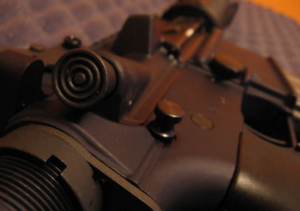 What should you do if a loved one passes away and you discover they owned a gun? When distributing personal affects after a family member dies, surviving family may not think twice about passing a gun along to the gun enthusiast in the family—if the decedent did not have a will stating otherwise.
What should you do if a loved one passes away and you discover they owned a gun? When distributing personal affects after a family member dies, surviving family may not think twice about passing a gun along to the gun enthusiast in the family—if the decedent did not have a will stating otherwise.
- Check for registration. This can be done by contacting law enforcement, a local reputable gun dealer (who may charge a search fee), or check online with websites like Gun Verify.
- If the gun is not registered—or not properly registered—contact law enforcement.
- Law enforcement will advise you whether the gun should be or can be legally registered or if the item must be surrendered.
If any registration requirement is met, the next step is to consider the beneficiary. Who will be receiving the firearm? If the beneficiary is a family member living in another state, special documents must be completed prior to transporting the firearm. The laws of each state the firearm is expected to travel through upon transport will need to be reviewed and compliance satisfied. The beneficiary may need to apply for permit in order to receive the gun.
For individuals who establish a gun trust, most of these complications do not arise. A gun trust can be formed as a legal “gun safe” that will “own” the weapons, designate who may possess them, and contain clear instructions about the transfer and ownership of the weapons should the trust owner become incapacitated or die. There are still necessary federal forms to complete should transport of Class III weapons owned by a gun trust be necessary.
Many people inherit guns and don’t know what to do with them. For guns that are unregistered and law enforcement states they must be surrendered, you can search for gun buyback programs. Gun buyback programs are hosted several times each year by local counties and allow weapons to be surrendered for cash or gift cards.